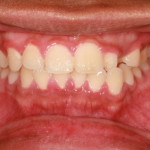 Tooth decay, dental abscesses, displaced teeth, and loose fillings are some of the most painful dental issues.
Tooth decay, dental abscesses, displaced teeth, and loose fillings are some of the most painful dental issues.
Toothache is considered to be one of the most common dental emergencies. It can interfere with your work, sleep, and feeding schedule. If you experience a severe toothache, it is recommended that you seek emergency dental care immediately.
What’s The Most Painful Dental Problem?
There are many reasons why you may experience toothache. The pain might be temporary, going away on its own, or persistent – which may be a sign of an underlying issue. In some cases, the pain may be accompanied by swelling and bleeding in the gums.
Pain is one of the most commonly experienced symptoms of dental issues. Continue reading below to find out more about the most painful dental issue.
Displaced/Dislodged Teeth
Having your tooth knocked out of place can be quite painful. You need to see a dentist immediately if your tooth has been knocked out. It is easier for a dental professional to minimize the damage caused by a dislodged tooth by addressing the problem as soon as possible. As a rule of thumb, you should never touch the root of a tooth that has been knocked out. Simply rinse off any dirt on the tooth with water, while holding the crown. If you cannot reposition the tooth, put it in milk and head to the dentist immediately.
Tooth Decay
Tooth decay can lead to sharp, stabbing pain in the affected teeth. Tooth decay occurs when a sticky layer of bacteria, referred to as plaque, adheres to the outer layer of teeth. The bacteria release acids that can dissolve the enamel, after feeding on carbohydrates and bacteria. Continued breakdown of the enamel exposes the more sensitive layers of teeth; thus, leading to pain and elevated sensitivity to heat and cold.
Abscess
In addition to being very painful, an abscessed tooth is considered to be a serious dental emergency. An abscessed tooth is normally caused by an infection of the soft tissue inside the tooth structure. While some people may have an abscess for weeks or even months without experiencing any pain, others may find this condition to be quite painful from the start.
Your dentist will need to drain the abscess and prescribe antibiotics to fight the infection. A root canal is the most common treatment for tooth abscesses.
Gum Infection
Gum infection is another painful dental condition. An infection of the gums can lead to periodontitis. When left untreated for long, the bacteria in the infected gums can spread to the bloodstream, leading to serious heart and lung problems.
Conclusion
As you can see, there are different types of painful dental problems. The level of pain involved varies from one individual to the next. If you are concerned about any dental pain you might be experiencing, be sure to contact your dentist in Baltimore immediately.


 Gum disease is a condition of swelling, soreness and infection of the tissues supporting the teeth. A dentist will screen your gums during a routine dental examination. Gum diseases are divided into two categories such as gingivitis and periodontal disease. Inflammation of the gums is referred to as gingivitis. The gums around your teeth will become red and swollen during this condition. The gums will bleed while cleaning or brushing your teeth. Untreated gingivitis can result in periodontal disease.
Gum disease is a condition of swelling, soreness and infection of the tissues supporting the teeth. A dentist will screen your gums during a routine dental examination. Gum diseases are divided into two categories such as gingivitis and periodontal disease. Inflammation of the gums is referred to as gingivitis. The gums around your teeth will become red and swollen during this condition. The gums will bleed while cleaning or brushing your teeth. Untreated gingivitis can result in periodontal disease.